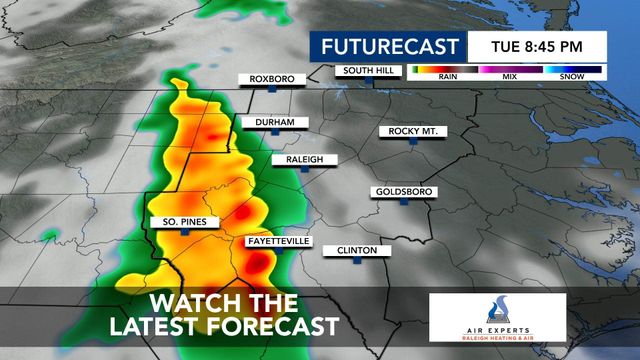MARY ANN WOLF: What gives Dr. Dudley Flood pause and hope

EDITOR'S NOTE: The following is Mary Ann Wolf's "Final Word" from the March 26, 2022 broadcast of Education Matters: "Celebrating 200 Episodes." Wolf is is president and executive director of the Public School Forum of North Carolina.
For our 200th episode of Education Matters, we were so fortunate to be joined by Dr. Dudley Flood, a legendary education hero who was instrumental in desegregating North Carolina’s public schools in the years following Brown v. Board of Education. He is also the namesake of the Public School Forum’s Dudley Flood Center for Educational Equity and Opportunity. On this momentous occasion, Dr. Flood joins us for the Final Word to share what gives him pause, what gives him hope and some of the lessons he has learned from walking alongside young people from childhood to adulthood.
DR. MARY ANN WOLF: I'd love to know -- What gives you pause? What gives you hope?
DR. DUDLEY FLOOD (ON HOPE): For the first 20 years of my educational career, we complained about apathy toward education. Whether those complaints were legitimate or not, that was our complaint. “Nobody cares.” I don't believe anybody can make that complaint now — everybody cares. Everybody has acted. Everybody has an opinion. Everybody has input. And I do believe everybody has a wish that education would be forthcoming for all the people. I'm not sure I've seen that before at the volume that I now see it.
(ON PAUSE): What gives me pause is I'm not sure that we yet have the formula for being able to discuss things on a basis without there being a notion that we have to fight about them. I think if we were able to have a procedure through which we could express our concerns, share our deliberations, share our anxieties in a peaceful setting… and that we didn't feel we had to be against something or someone, but in FAVOR of something or someone — to share leadership. Then, I believe, we would make more progress more quickly.
WOLF: I wonder if there is a student or students that you always think about that helps drive you to continue this work?
FLOOD: One young man who was one of my students, when I taught middle grades, he finished eighth grade at the same time that I decided to go back to the high school to teach. And he thought I had followed him, he thought my reason for going back to the high school was to follow him. And of course, then he went on to the university and I meddled in his business throughout that…and even when he became a professor, I meddled in his business, and then he became Assistant Dean of the School of Education at North Carolina State and I meddled in his business. Dr. Lee Stith was that student.
And then Dr. Lee Grier was the young man who I met when he was struggling to determine what he wanted to do with his life. And I suggested to him that one thing he ought to do is to see if he could motivate other people to think the way he was thinking. He felt out of place. Because he was projecting that everybody ought to get a good education. And being white, he didn't know whether he had an audience for that or not — this was back in the 1960s. And I encouraged him to say what you feel and what you think.
And I suggested to him that people won't always remember what you said, but they will always remember how you made them feel. So put your personhood into what you're doing. Don't worry so much about your words — put your personhood in it.
One of these students was from childhood, and one was from adulthood, and each of which had the same set of personality traits. And that is they believed in what they were doing. And they needed a boost. Because what they were doing is so unique and peculiar for that time, that place that they weren't always sure it would be accepted well.
So what I've come to conclude from those two and other students, is that one of the things education has to do beyond the curriculum, is that people need to become acquainted with themselves at great depths. And they need to realize that the first evaluation of personhood is yours. You decide. And when you've decided that, then convention says that's who you are and that's what you are. Let other people determine whether they see that in you or not— but don't ever not see that in yourself.
So in each of these young people, Lee Stith having been the son of a farmer from eastern North Carolina and never having had the perspective of what was possible for a young black kid, and Lee Grier who had worked several years and felt he hadn’t achieved what he thought he was imagined to do — one ingredient which they had in common was they had a personhood that they weren't giving. They were giving knowledge, they were giving strategies, but they weren't giving themselves.
I've concluded that the greatest element of teaching should be to be able to give oneself — and I learned that through them, and others, too.









